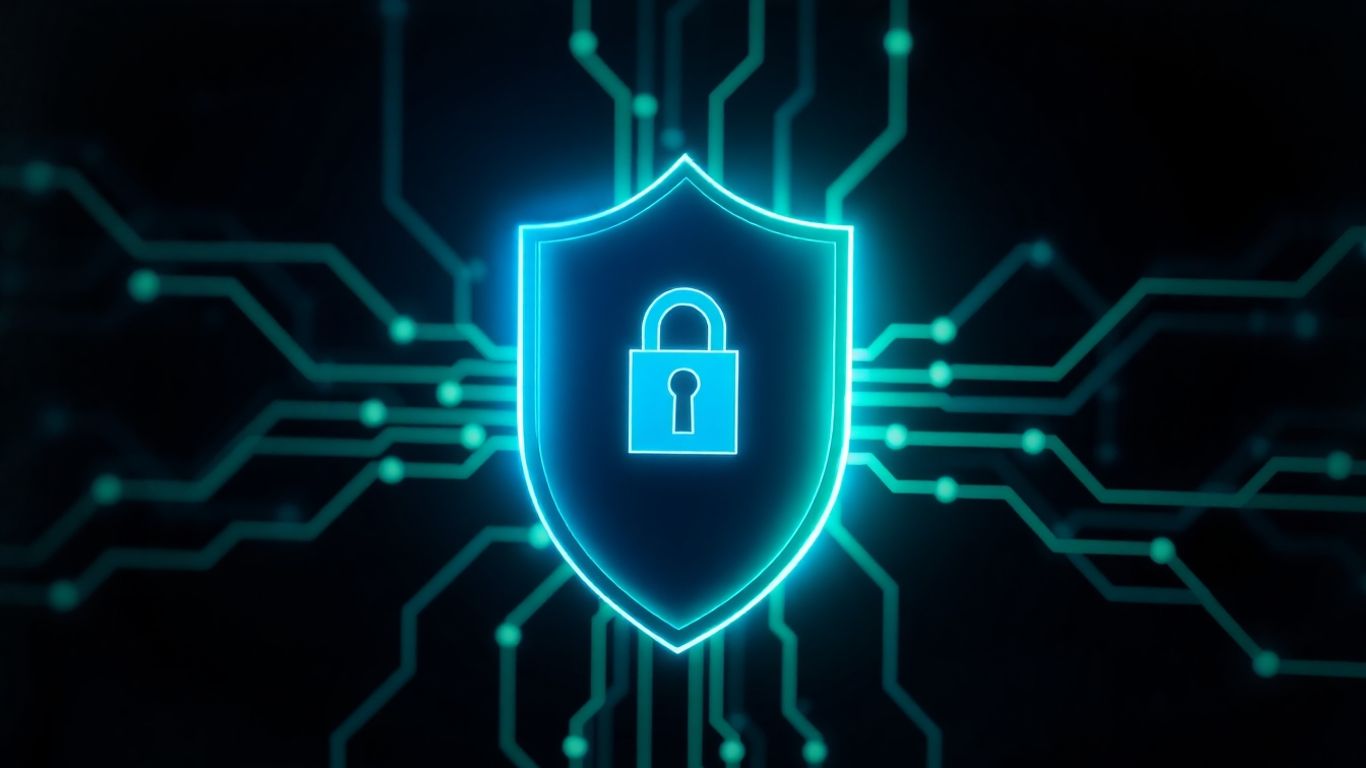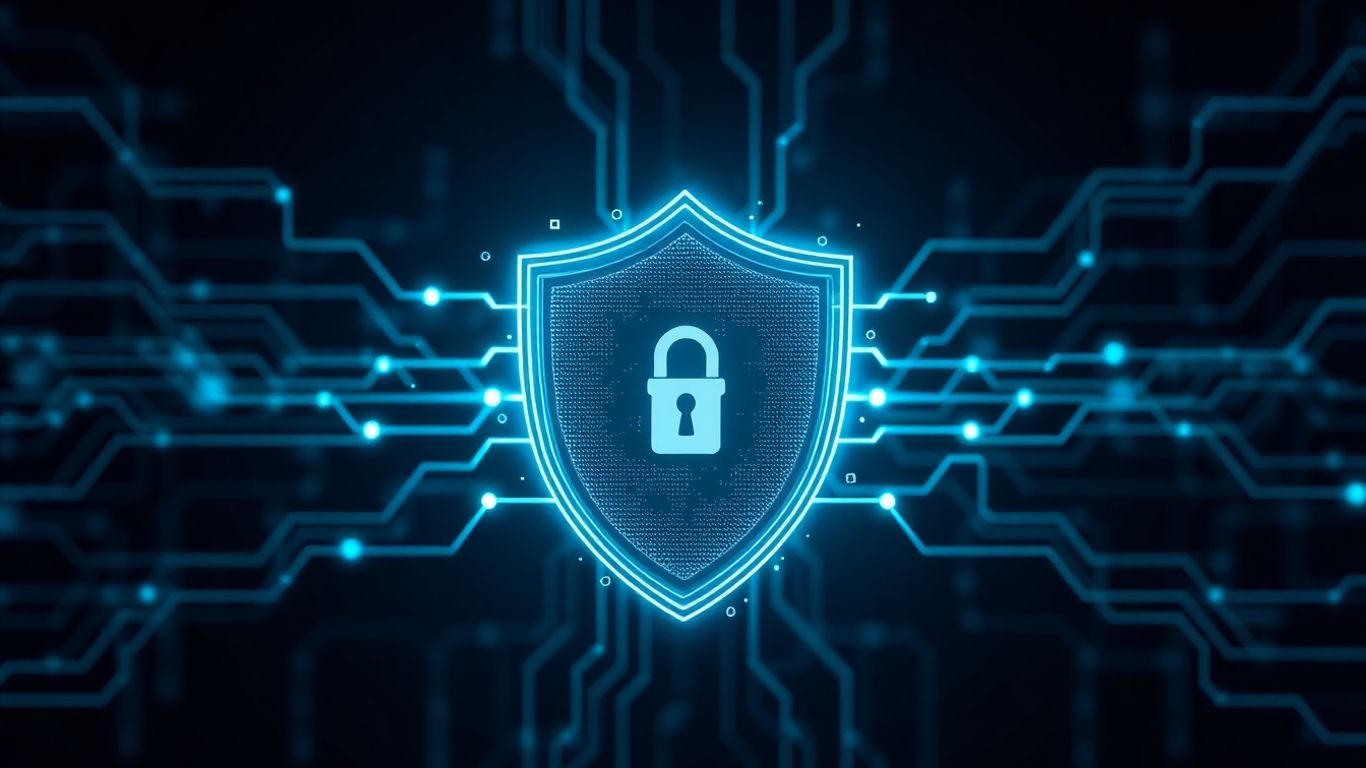[ newsletter ]
Stay ahead of Web3 threats—subscribe to our newsletter for the latest in blockchain security insights and updates.
Thank you! Your submission has been received!
Oops! Something went wrong. Please try again.
Choosing the right cyber security audit service in 2025? Learn key features, how to evaluate providers, and navigate compliance for robust business protection.





So, you're looking to get a cyber security audit service for your business in 2025? It's a smart move, honestly. With all the digital threats out there, it's easy to feel a bit lost. Think of it like getting your car checked out – you want to make sure everything's running smoothly before a breakdown happens. This guide is here to help you figure out what you actually need, what makes a good service, and how to pick the right one without getting overwhelmed. We'll break it down so you can make a solid choice.
Before you even think about picking a cybersecurity audit service, you really need to get a handle on what you need from one. It’s not a one-size-fits-all deal, and trying to force a generic audit onto your specific situation is just a waste of time and money. Think of it like going to the doctor; you wouldn't ask for a general check-up if you had a specific pain, right? You'd tell them where it hurts.
So, what are you actually trying to achieve with this audit? Are you worried about hackers getting into your customer database? Or maybe you're in an industry where you have to follow certain rules, like HIPAA for health info or PCI for credit card details. Clearly stating your goals is the first, and maybe most important, step. This helps decide what parts of your business the audit should look at – your network, your apps, how you store data, or everything. Without a clear scope, the audit can wander all over the place, missing what's really important.
Here’s a quick way to think about it:
Now, who's going to do the audit? You could have your own IT team do it, which is an internal audit. They know your systems inside and out, which can be good. But, they might also be a bit too close to the situation, maybe overlooking things because they're used to them. An external audit, done by a third-party company, brings a fresh, objective look. They've seen a lot of different businesses and threats, so they often spot things your internal team might miss. Honestly, a mix of both is usually the best bet. Your internal team handles the day-to-day and knows the quirks, while the external folks provide that unbiased, expert view.
How often should you get audited? It really depends. For most businesses, once a year is a good starting point. But if you handle a lot of sensitive customer data, or if you're in a heavily regulated field, you might need to do it more often – maybe twice a year, or even quarterly. Think about it: if you just added a bunch of new servers or switched to a whole new software system, that's a prime time for an audit. The threat landscape changes constantly, so staying on top of it with regular checks is key to keeping your business safe.
The digital world doesn't stand still, and neither should your security. Regular checks aren't just about finding problems; they're about building a stronger defense over time. It's an ongoing process, not a one-and-done task.

When you're looking for a company to check your digital defenses, you don't want just anyone. You need a service that really knows its stuff and can give you a clear picture of where you stand. Think of it like hiring a contractor to inspect your house before a big storm – you want someone thorough, experienced, and who uses the right tools.
First off, check their background. How long have they been doing this? Do they have certifications like CISSP or CISA? It’s also a big plus if they’ve worked with businesses like yours before. An auditor who understands the specific risks in, say, the healthcare industry versus retail will spot issues others might miss. They should have a solid track record, ideally with at least a few years of hands-on experience in security assessments. This isn't the place to cut corners; experience really does matter when it comes to finding those hidden weak spots.
A good audit service won't just poke around randomly. They'll have a structured plan, a methodology, that they follow. This usually means using established frameworks, like the NIST Cybersecurity Framework or ISO 27001, as a guide. These frameworks help make sure they look at all the important areas, such as how you manage risks, how you handle security incidents, and how you control who gets access to what. But a top-tier service also knows that every business is different, so they should be able to tweak their plan to fit your unique setup and concerns. It’s about having a solid, repeatable process that’s also flexible.
Beyond just having a checklist, the best auditors use sophisticated tools. Basic vulnerability scanners are okay for a quick look, but a premier service will employ more advanced platforms. This might include tools that can simulate real attacks to see how your systems hold up, or platforms that help them gather and analyze data to make smarter decisions about your security. They should be using technology that goes beyond the basics to really uncover potential problems and show you exactly where the risks lie.
The goal isn't just to find problems, but to find the right problems – the ones that could actually cause significant damage to your business. A good service uses a mix of smart people and smart tools to achieve this.
Here’s a quick look at what some services offer:
So, you've figured out what you need from a cybersecurity audit. Great! Now comes the tricky part: picking the right company to actually do it. It's not just about finding someone who knows their stuff; it's about finding a partner who fits your business. Let's break down what to look for.
First off, can they actually find the problems? You want a provider that uses more than just basic scanners. Think about companies that employ advanced tools, maybe even platforms that simulate how real attackers would try to break in. This gives you a much clearer picture of your actual risks. And what happens after they find something? A good service won't just hand you a long list of issues. They should offer solid advice on how to fix things, not just generic tips. Some might even help you implement the fixes or at least guide you through the process. It’s like getting a diagnosis versus getting a full treatment plan.
Time is money, and in cybersecurity, time can also mean the difference between a minor hiccup and a major disaster. When you're looking at providers, ask about how quickly they can get the audit done and, importantly, how fast they can turn around the results. Once you've made fixes based on their report, you'll want to know if they can do a follow-up scan (a rescan) to confirm those fixes actually worked. This isn't just about getting a "clean" report; it's about making sure your security is genuinely better. A provider that offers quick rescans shows they're invested in your ongoing security, not just a one-off assessment.
Think about how this audit service will fit into your existing setup. Do they play nice with the tools you already use, like your project management software or code repositories? Integrations can make the whole process smoother, from reporting issues to tracking fixes. When it comes to pricing, it can get complicated. Some companies charge a flat fee, others by the hour, and some have complex quote-based systems. It’s important to understand exactly what’s included in the price. Are there extra costs for rescans? What about detailed reports? Make sure you’re comparing apples to apples and that the pricing model makes sense for your budget and the scope of work you need done.
Here's a quick look at some common features to consider:
Choosing the right audit provider means looking beyond just the technical report. It's about finding a partner who understands your business, communicates clearly, and helps you actually improve your security posture, not just tick a box.

It's easy to mix up a cybersecurity audit with a compliance audit, but they're not quite the same thing. Think of it this way: a cybersecurity audit looks at your overall security health, finding weak spots and suggesting fixes. A compliance audit, on the other hand, checks if you're following specific rules set by laws or industry standards, like GDPR or HIPAA. While they overlap, one focuses on general security and the other on meeting particular legal obligations.
Trying to keep up with all the different regulations can feel like a full-time job. That's where a good audit service really shines. They know the ins and outs of rules like HIPAA for healthcare or PCI DSS for credit card data. They can help you figure out exactly what you need to do to meet these requirements. Instead of you guessing, they can point to specific security controls and processes that will get you compliant and keep you that way. This is super important if you want to avoid big fines and keep your customers' trust.
Once an audit is done, you'll have a list of things that need fixing. If you're dealing with regulations, the audit service should be able to connect those findings directly to the specific rules you need to follow. For example, if they find weak password policies, they can show you how that relates to a specific control in, say, the NIST framework or a particular clause in GDPR. This makes it much clearer why a certain fix is necessary and how it helps you meet your legal obligations. It turns a technical report into a practical roadmap for staying on the right side of the law.
Getting a cybersecurity audit done is a big deal, and how you talk about it matters. You need a way to share information securely from the get-go. Think of it like having a private line for sensitive discussions. This means agreeing on how updates will be sent, who gets them, and what methods are safe to use. It's not just about sending emails; it might involve secure portals or encrypted messages. Keeping the lines of communication open and secure prevents misunderstandings and ensures everyone is on the same page.
Auditors often speak in a language full of technical terms. It's like trying to understand a mechanic talking about your car's engine – "the flux capacitor is misaligned." What does that even mean for you? A good audit service won't just give you a list of technical problems. They'll translate those findings into plain English, explaining what the risk is to your business and what needs to be done. They should tell you why something is a problem, not just that it is a problem.
After an audit, you'll likely have a list of things that need fixing. Some are minor glitches, others are major security holes. You can't fix everything at once, especially if you have a limited budget or team. The audit report should help you figure out what's most important to tackle first. This usually means looking at how likely a vulnerability is to be exploited and how bad the damage would be if it were. A good report will categorize these issues, maybe like this:
Understanding the severity of each finding helps you make smart decisions about where to put your time and money. It's about fixing the most dangerous problems before they become actual breaches.
Here’s a way to think about the prioritization:
Look, nobody wants to deal with a cyberattack. It’s a massive headache, not to mention the potential for serious financial and reputational damage. That’s where being proactive with security audits really shines. Instead of waiting for something bad to happen, you’re actively looking for weak spots before the bad guys do. It’s like fixing that leaky faucet before it floods your kitchen – much less stressful and way cheaper in the long run.
Think of your business's digital setup like a house. You wouldn't leave the back door unlocked, right? A security audit is like a thorough check of all your doors, windows, and even that slightly dodgy basement window. It systematically hunts for those unlocked doors – the vulnerabilities – that could let trouble in. We're talking about things like outdated software, weak passwords, or misconfigured systems. Identifying these issues early means you can patch them up before they become a problem. It’s about getting ahead of the curve and not giving attackers any easy entry points. This kind of regular check-up is key to maintaining a solid cybersecurity posture.
Being resilient means bouncing back quickly when things go wrong. For businesses, this translates to being able to keep operating even if there's a security incident. Proactive audits help build this resilience by ensuring your defenses are strong and that you have plans in place. It’s not just about finding problems; it’s about fixing them and making sure your systems can withstand potential attacks. This involves:
When an audit flags a vulnerability, it’s not just a technical note; it’s a potential business risk. Understanding the severity and likelihood of these risks allows you to make smarter decisions about where to put your security budget. Instead of just throwing money at security, you can direct it where it’s most needed. For example, if an audit shows a high risk of data loss due to an unpatched server, investing in patching that server or upgrading it becomes a clear priority. This approach ensures your security spending is effective and directly addresses the most significant threats to your business operations.
A proactive approach means you're not just reacting to threats; you're actively shaping your security environment to be as robust as possible. It's about building a defense that's always a step ahead, making your business a much harder target and significantly reducing the chances of a costly breach.
So, picking the right cybersecurity audit service for your business in 2025 really comes down to knowing what you need. It's not just about finding a company that can scan your systems; it's about finding a partner. Look for folks who can explain things clearly, help you fix what's broken quickly, and maybe even help you tick boxes for regulations like HIPAA or GDPR if that's your thing. Remember, a good audit isn't just a report; it's a step towards making your business safer. Don't just get a scan, get a plan to actually improve your security. It’s worth the effort to find someone who fits your company's specific situation.
Think of a cybersecurity audit like a check-up for your business's computer defenses. It's a way to find weak spots in your digital security before bad guys do. Experts look at your systems and tell you where you need to beef up your protection to keep your information safe.
In today's world, cyber threats are everywhere. An audit helps you spot problems early, like unlocked doors or hidden holes in your digital walls. This means you can fix them before someone steals your important data or messes up your systems, which could cost a lot of money and trust.
It's a good idea to have an audit at least once a year. But if your business handles a lot of sensitive customer information or follows strict rules, you might need to do it more often, maybe every six months or even every few months. Also, if you make big changes to your computer systems, it's smart to get an audit right after.
A cybersecurity audit looks at your overall digital safety to find any weaknesses. A compliance audit, on the other hand, specifically checks if you're following certain rules and laws, like those for handling credit card payments or personal health info. Sometimes, an audit can do both!
You want a service that has lots of experience, knows your industry, and uses smart tools to find problems. They should also be good at explaining what they find in a way you can understand and help you figure out how to fix things. Quick help with fixes and checking again to make sure they worked is a big plus!
The price can change a lot. A simple check might cost a few thousand dollars, but a really thorough one for a big company could cost tens of thousands. It depends on how big your business is, how complicated your computer setup is, and what kind of services you need.


